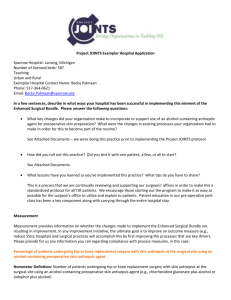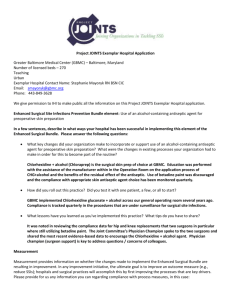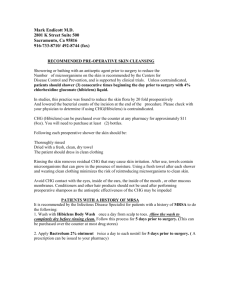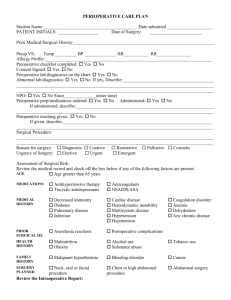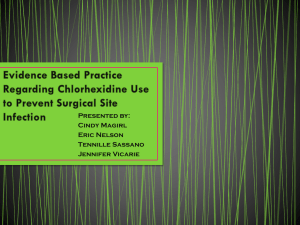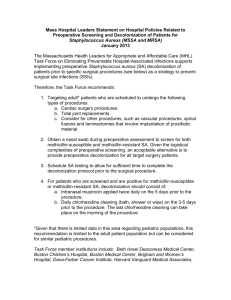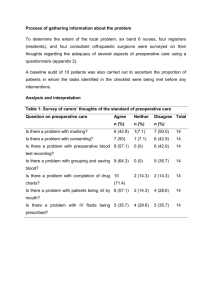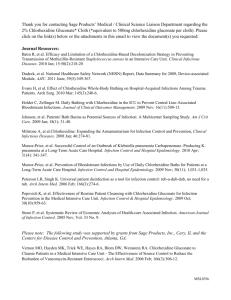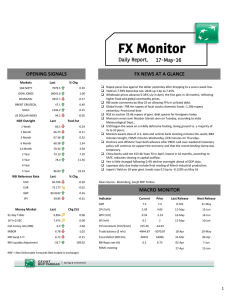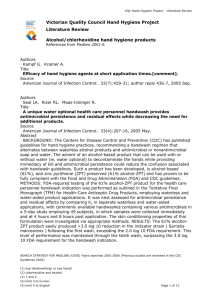File - Iowa Association of Nursing Students
advertisement
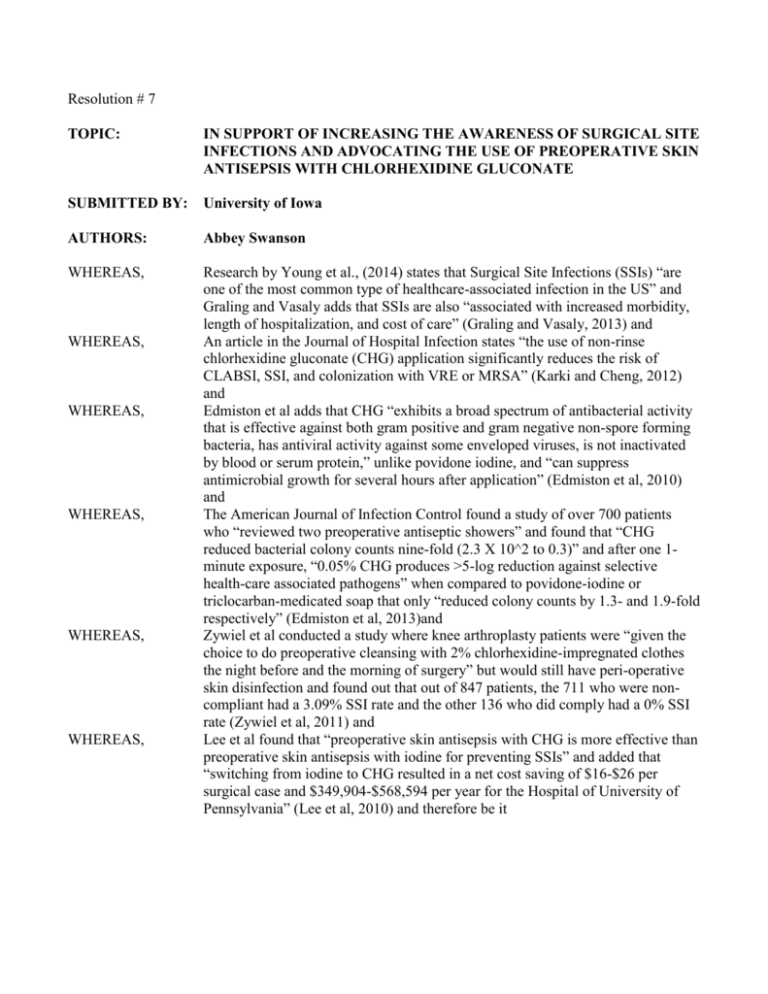
Resolution # 7 TOPIC: IN SUPPORT OF INCREASING THE AWARENESS OF SURGICAL SITE INFECTIONS AND ADVOCATING THE USE OF PREOPERATIVE SKIN ANTISEPSIS WITH CHLORHEXIDINE GLUCONATE SUBMITTED BY: University of Iowa AUTHORS: Abbey Swanson WHEREAS, Research by Young et al., (2014) states that Surgical Site Infections (SSIs) “are one of the most common type of healthcare-associated infection in the US” and Graling and Vasaly adds that SSIs are also “associated with increased morbidity, length of hospitalization, and cost of care” (Graling and Vasaly, 2013) and An article in the Journal of Hospital Infection states “the use of non-rinse chlorhexidine gluconate (CHG) application significantly reduces the risk of CLABSI, SSI, and colonization with VRE or MRSA” (Karki and Cheng, 2012) and Edmiston et al adds that CHG “exhibits a broad spectrum of antibacterial activity that is effective against both gram positive and gram negative non-spore forming bacteria, has antiviral activity against some enveloped viruses, is not inactivated by blood or serum protein,” unlike povidone iodine, and “can suppress antimicrobial growth for several hours after application” (Edmiston et al, 2010) and The American Journal of Infection Control found a study of over 700 patients who “reviewed two preoperative antiseptic showers” and found that “CHG reduced bacterial colony counts nine-fold (2.3 X 10^2 to 0.3)” and after one 1minute exposure, “0.05% CHG produces >5-log reduction against selective health-care associated pathogens” when compared to povidone-iodine or triclocarban-medicated soap that only “reduced colony counts by 1.3- and 1.9-fold respectively” (Edmiston et al, 2013)and Zywiel et al conducted a study where knee arthroplasty patients were “given the choice to do preoperative cleansing with 2% chlorhexidine-impregnated clothes the night before and the morning of surgery” but would still have peri-operative skin disinfection and found out that out of 847 patients, the 711 who were noncompliant had a 3.09% SSI rate and the other 136 who did comply had a 0% SSI rate (Zywiel et al, 2011) and Lee et al found that “preoperative skin antisepsis with CHG is more effective than preoperative skin antisepsis with iodine for preventing SSIs” and added that “switching from iodine to CHG resulted in a net cost saving of $16-$26 per surgical case and $349,904-$568,594 per year for the Hospital of University of Pennsylvania” (Lee et al, 2010) and therefore be it WHEREAS, WHEREAS, WHEREAS, WHEREAS, WHEREAS, RESOLVED, That Iowa Association of Nursing Students (IANS) encourage its constituents to advocate and educate about the importance of using chlorhexidine gluconate (CHG) scrub preoperatively; and be it further RESOLVED, That IANS support creation of educational resources, such as pamphlets, brochures, and newsletters that are available in various hospital surgical settings, waiting rooms, and public health clinics to educate patients and healthcare workers about the prevalence of surgical site infections, if feasible; and be it further RESOLVED, that IANS and all Iowa nursing schools encourage collaboration with local and supporting health care facilities to educate the importance of CHG pre-surgical cleansing and advocate the idea of including this pre-surgical cleansing into the “Time-out” checklist before every surgical procedure; and be it further RESOLVED, that IANS send a copy of this resolution to the Association of periOperative Registered Nurses, Academy of Medical-Surgical Nurses, American Pediatric Surgical Nurses Association, American Society of Plastic Surgical Nurses, American Society of PeriAnesthesia Nurses, American Nurses Association, National League for Nursing, Iowa Board of Nursing, and all others deemed appropriate by the IANS Board of Directors.
